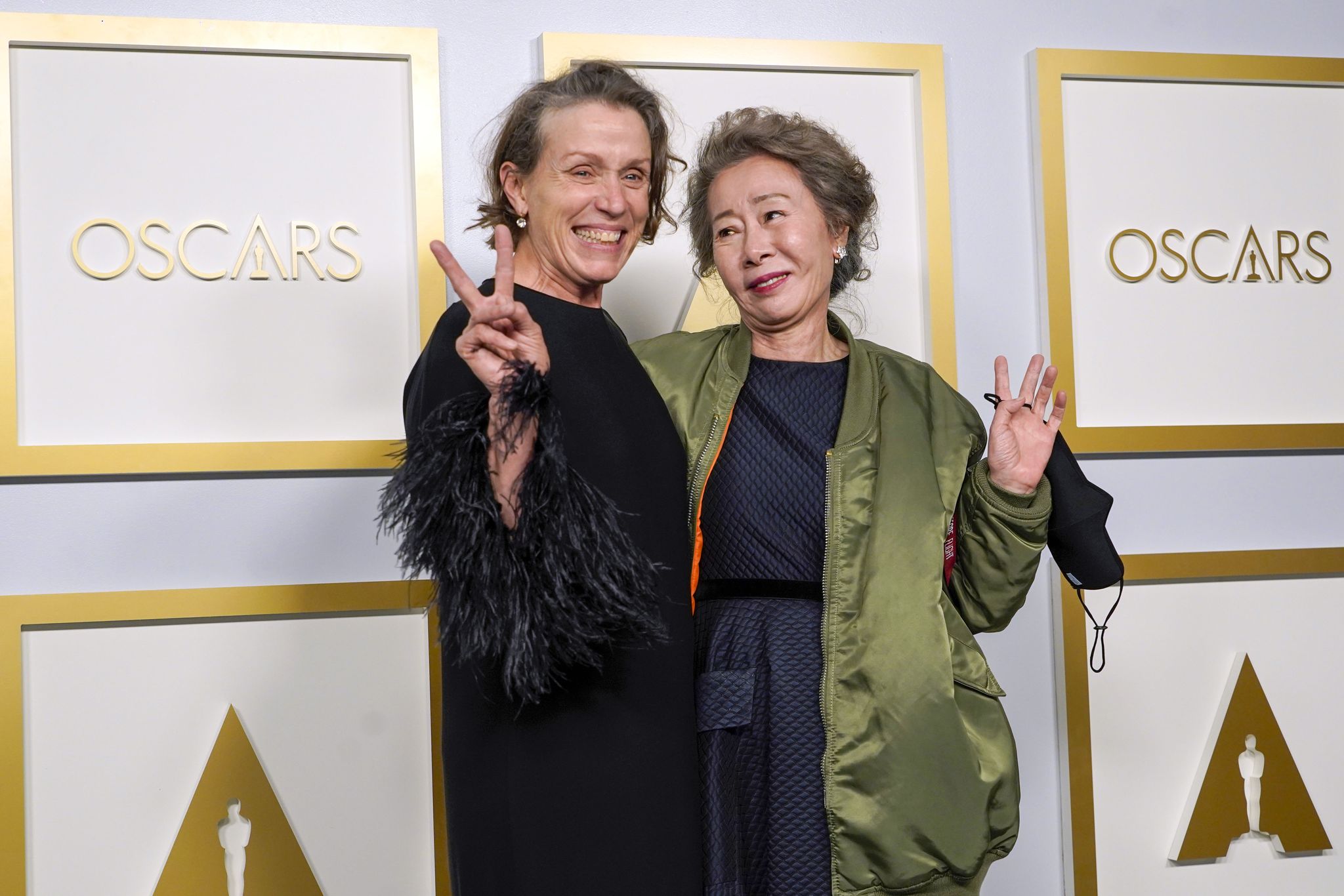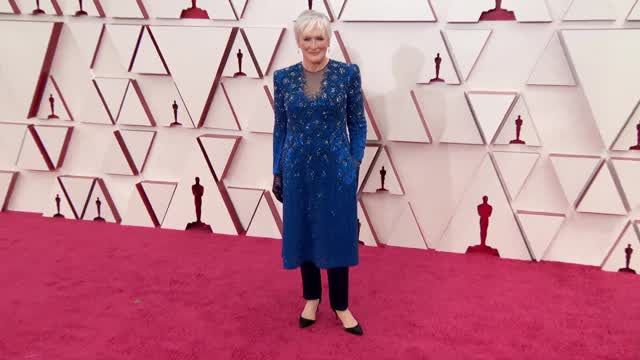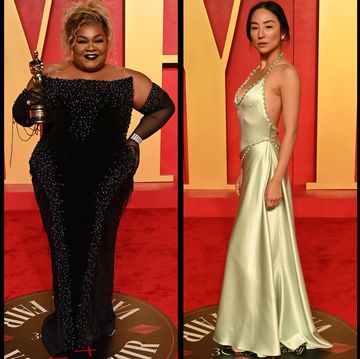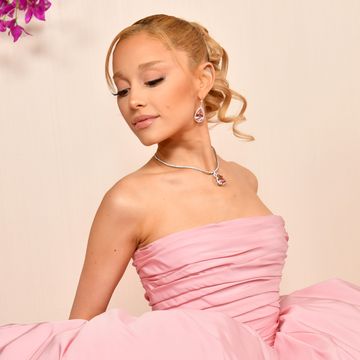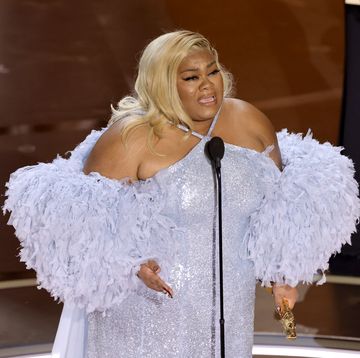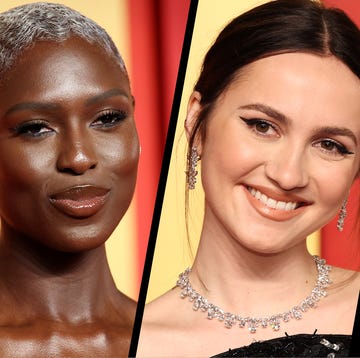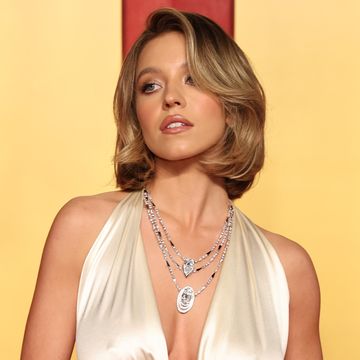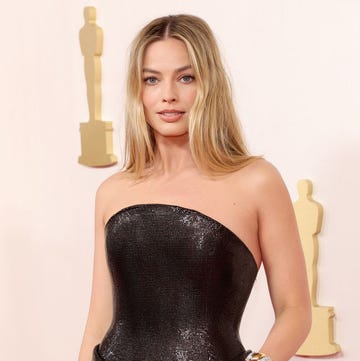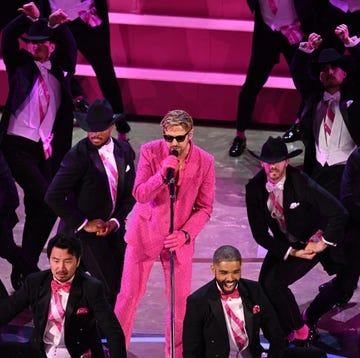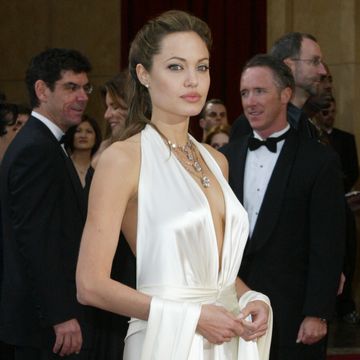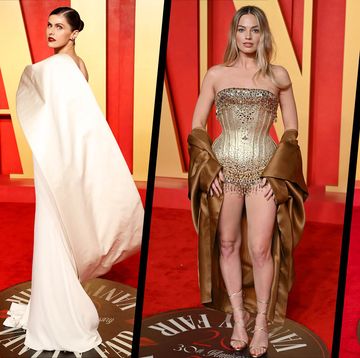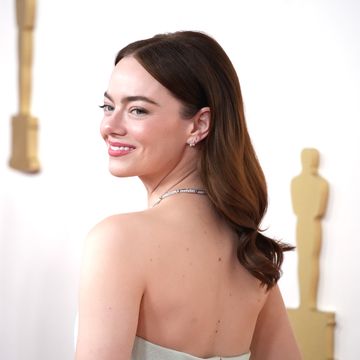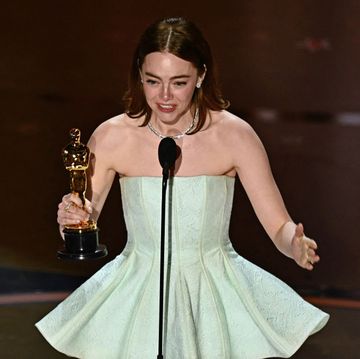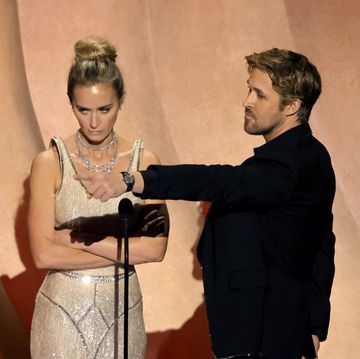Historically, Hollywood has not been kind to women older than 40. The script seems to end beyond the point of marriage and children, the rest of their lives an uninteresting abyss not worthy of exploring. Last night’s Oscars proved the opposite to be true – Frances McDormand, aged 63, won Best Actress for her performance in Nomadland. Youn Yuh-Jung, 73, scooped Best Supporting Actress for Minari. Colette Marin-Catherine, 90, was the focus of this year’s Best Documentary Short, Colette, after she, a former French resistance member, visited the concentration camp where her brother was murdered during the war. The night’s biggest laughs came via Glenn Close, 74, who taking yet another inexplicable Oscars miss in her stride, twerked to the 1988 funk hit Da Butt.
There is something that feels almost revolutionary in the way in which older women took the limelight at yesterday’s ceremony. Of the 93 years that the Academy’s Best Actress category has existed, women over 60 have won just 10 times. Only on 18 occasions has the winner been between 40 and 59. Last night marked the third time McDormand has scooped Best Actress; she took the prize for Fargo in 1997 and Three Billboards Outside Ebbing, Missouri in 2o18.
Few would argue that Hollywood has a problem with ageism when it comes to women. Maggie Gyllenhaal was famously told, aged 37, that she ‘too old’ to play opposite a male actor, aged 55. Recently, Oscar-nominated Mank was criticised for casting 33-year-old Tuppence Middleton as the wife of famed screenwriter Herman J. Mankiewicz, played by 62-year-old Gary Goldman. The real-life married couple were the same age. In 2020, the Geena Davis Institute of Gender in Media conducted the first ever analysis of how women over age 50 are depicted in 2019's 30 top-grossing films from the US. The findings were ugly. Female characters over 50 are four times likelier than men to be depicted as senile or frumpy and twice as likely to be shown as physically unattractive or large-bodied. They are also 69.5 per cent likelier to be shown as sickly and seven times likelier to be portrayed as housebound. That’s if they even make it into the film at all – in 2018, a different study revealed that women aged 40-plus received only 25 per cent of all speaking or named roles.
This lack of visibility is baffling given just how much great material filmmakers have to mine when it comes to the narratives and lives of women beyond 40. As far as I can see from the women I know in their midlife, the story looks far from over. The ‘discovering-who-you-are’ part of your twenties and thirties looks small fry compared to the heavyweight, complicated issues middle-aged women have to deal with. There are few films made about women who are trying to remain in love with the same person 20 years on, and all the beauty and the challenges that might involve. Little is said about the resilience of women who have managed to keep their children alive while nursing terminally ill parents. Or the brave, brilliant women who every day stuck two fingers up to what society expected of them, who never married the wrong man but stayed single.
While stories about infertility are slowly emerging, there is so much more to be said – about the pain involved and how complicated friendships become when one friend is unable to have a child and the other is happily onto her fourth. On that subject, why does cinema never talk positively about women who decide not to have children – what about their narrative and their path to happiness? Why on-screen are we so rarely told about the stories of transformation, the woman who changed careers in her fifties because she finally knows herself well enough to ditch what went before? Or the highly qualified women who took a career break to raise children and struggled to re-enter a workplace set up to help and promote white men? Everyone says that the older you get, the less you care about what others think of you, which seems inevitable given how little headspace you’d have for anything else beyond all the numerous all-consuming stuff women over 40 have to think about.
The cultural stereotypes around ageing, especially if you're female, are so toxic that no one even wants to admit that they're old. That mature women are barely even visible in cinema (and when they are, they're portrayed as witchy, sexless and unpleasant) only compounds the problem. Perhaps part of our fear about ageing is because we don’t see enough mainstream representation of it. We rarely see the vibrancy, resilience or complexity of women in their midlife or beyond. By hiding the stories of older women, we throw over them a cloak of shame.
Hollywood has gone to great lengths not only to make middle-aged women look unappealing and unattractive, but to tell audiences that they don’t exist. For every Nomadland and Gloria Bell, there is another Mank or Marvel film. We are missing out on so many great stories – so many unforgettable, touching, relatable and funny films just because the big (male) shots in LA are too lazy to look beyond women aged 40. Last night’s Oscars offered a positive sign; let’s hope that it's prophetic.
In need of some at-home inspiration? Sign up to our free weekly newsletter for skincare and self-care, the latest cultural hits to read and download, and the little luxuries that make staying in so much more satisfying.
Plus, sign up here to get Harper’s Bazaar magazine delivered straight to your door.
